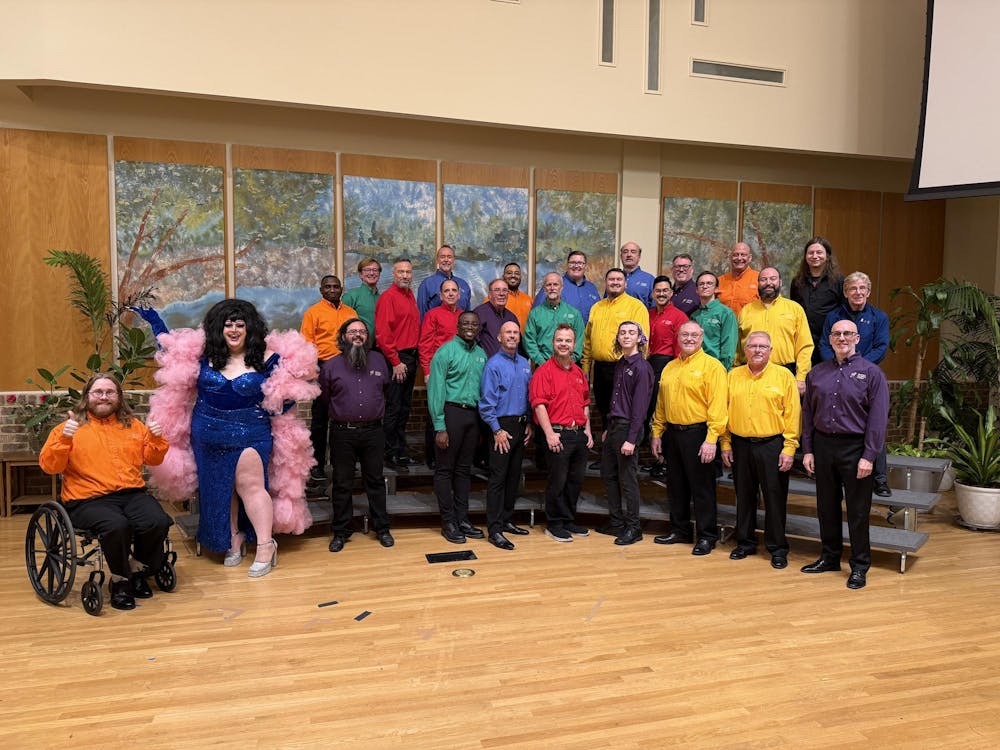On Nov. 15 and Nov. 16, The Triangle Gay Men's Chorus entertained the communities of Durham and Raleigh with hits from Lady Gaga, Elton John, ABBA and more.
This concert, themed Gay Icons, celebrated musical artists who are allies and friends of the LGBTQ+ community. Songs like “Born this Way” by Lady Gaga and more have become gay anthems over the years, helping people be confident in their sexuality and gender identities, especially in times when being gay wasn't widely accepted.
Acceptance has been at the center of the Triangle Gay Men's Chorus, which was founded in 1995 from a group of 16 men. Today, you don't have to be gay or a man to join them, but creating a safe space is still very important for the chorus.
“It was fairly political to create a chorus back then that had the term ‘gay’ in the title,” Drew Register, the acting president of the Triangle Gay Men's Chorus, said. “Since then, I think it's continued to meet that mission of just providing a space for people who want to create community with other LGBTQ people and who also want to sing and make music together.”
The Triangle Gay Men's chorus is a community chorus with no audition requirement. Anyone who supports their mission and sings with a lower voice can join. The chorus typically sings in the baritone, tenor and bass ranges, though they can also make space for altos.
Upon joining, members have a five to 10-minute meeting with the chorus director, who determines their vocal range and places them in their respective sections.
The chorus performs in two concert cycles — fall and spring. Each cycle, they perform in at least two of the three cities the Triangle is composed of, mainly Durham and Raleigh.
Artistic Director Stanley Wilson was the creative mind behind the theme “Gay Icons.” Wilson had been working to restore audience engagement for the Triangle Gay Men’s Chorus concerts after COVID-19 caused his group, as well as other nonprofits, to struggle.
“For a good number of cycles, I've really very actively gone after music that is well known in the hopes that it is appealing to bring audience members to our concert,” Wilson said. “For the gay community, the queer community, so many of these artists have been really important in terms of messages and creating anthems of sorts for the community. These artists, some of them are gay or queer artists, and some of them are not, but they're all songs that people know and really enjoy listening to.”



